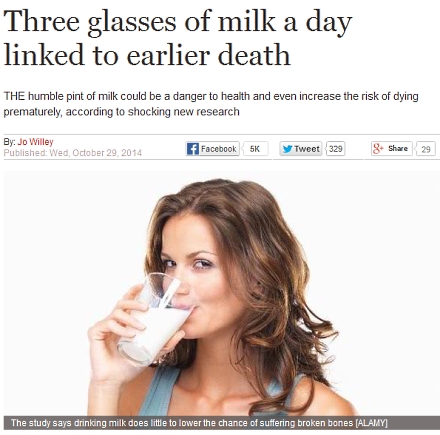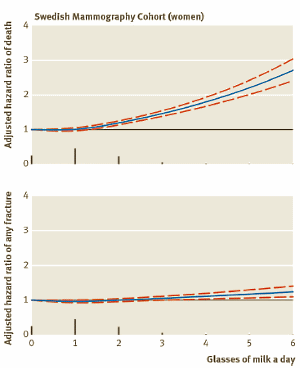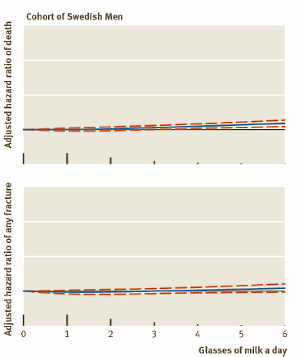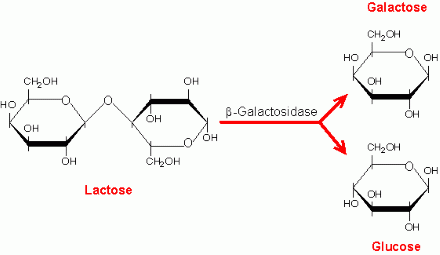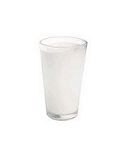|
Definition: "An ergogenic aid is any substance or phenomenon that enhances performance "
|
|
||||||||
22.11.2014 |
|
|
Milk, the white ladykiller
You can't have missed it, it's all over the news media: the epidemiological study that researchers at Uppsala University in Sweden published recently in the BMJ. The study shows that every glass of milk you drink daily increases your chance of an early death and of broken bones. The culprit is thought to be the sugar galactose.
Study
Results
Among the women the situation was different. For every glass of milk they drank each day, their chance of dying increased by 15 percent, and their chance of breaking a bone increased by 2 percent.
Women who drank three glasses of milk a day were twice as likely to die compared with women who drank less than one glass of milk a day. Milk increased the chance of developing fatal cardiovascular diseases in particular, but also increased the likelihood of developing a fatal form of cancer.
Explanation
Results
The Chinese were actually able to reduce the harmful effects of galactose by administering R-alpha-lipoic acid. In another Chinese animal study, ECGC, a flavonoid in green tea, protected mice against galactose-induced premature aging. [Biol Pharm Bull. 2009 Jan;32(1):55-60.]
The dose that the Chinese used was not high, the Swedes say. "This is equivalent to 6-10 g in humans, corresponding to 1-2 glasses of milk. Based on a concentration of lactose in cow's milk of approximately 5%, one glass of milk comprises about 5 g of D-galactose."
The researchers tried to test the theory and measured the concentration of the inflammatory protein Interleukine-6 in the blood and of the inflammatory marker 8-iso-PGF2alpha in the urine. The more milk the study participants drank, the higher the levels of these were.
Cheese, soured milk and yoghurt
Conclusion
Source:
More: |
|

